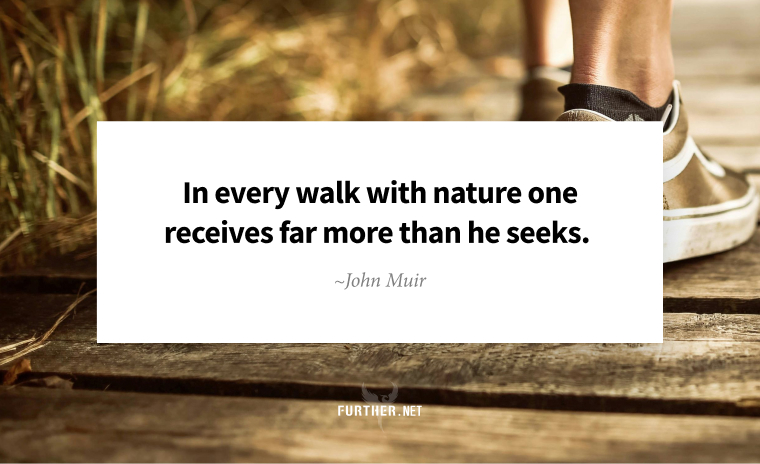
As a kid, you probably spent most of your summer days outdoors. As adults, especially in today’s record-breaking heat, you’re likely spending as much as 90% of your time indoors, as most Americans reportedly do.
It’s not just that we’re not getting enough time outside. There’s a lot more to it, as Ken Smith, author of The Way of the Hermit, who “moved to the wilderness to become part of nature,” points out:
I’ll tell you what I think is weird, and it ain’t the hermit. It’s how entire generations of people have been conned into believing that there is only one way to live, and that’s on-grid, in deepening debt, working on products you’ll probably never use, to line the pockets of people you’ll never meet, just so you might be able to get enough money together to buy a load of crap you don’t need, or, if you’re lucky, have a holiday that takes you to a place, like where I live, for a week of the happiness I feel every day.
You don’t have to go full-hermit to benefit from the great outdoors. All you need to do to enjoy the well-documented health benefits of nature is apply a simple rule: 20-5-3.
Into the Wild
After an intense vacation in Alaska, Michael Easter, the author of The Comfort Crisis, wondered about the Zen-like buzz it left him with. So, he connected with neuroscientist Rachel Hopman, Ph.D., for insight. It turns out he’d been enjoying the peak of the “nature pyramid,” as Hopman explained:
Think of it like the food pyramid, except that instead of recommending you eat this many servings of vegetables and this many of meat, it recommends the amount of time you should spend in nature to reduce stress and be healthier.
The “20-5-3 Rule” represents the nature pyramid with this simple formula:
- 20 minutes, 3x weekly in “local” nature (i.e., a park)
- 5 hours monthly in wilder nature (i.e., a state park)
- 3 days annually in the wilderness (i.e., camping)
Doable, right? Lock it in by recognizing why it benefits your mind, body, and spirit.
Forces of Nature
Hopman found that even the smallest increments — those 20-minute walks — boost cognition, memory, and well-being. That’s because your brain enters “soft fascination” mode, where your attention is held as your mental fatigue is alleviated. (Just leave the phone at home!)
Studies out of Finland (aka the happiest country in the world) show that spending time in wilder nature (the five hours in the equation) boosts stress relief even more, thanks to the sights (mind-soothing fractals), sounds, and smells.
Go all the way off the grid for just three days, and research shows increases in creativity and problem-solving abilities and decreases in anxiety-related conditions, including PTSD.
Sure, the 20-5-3 Rule is a little formulaic to do something that should come naturally to us, but then again, a little outside thinking is necessary to preserve your health and happiness.
Further Exploration:
The ’20-5-3′ Rule Prescribes How Much Time to Spend Outside (Men’s Health)
Essential Nature by Marsha Stopa
